
#top {position: relative; top: -90px;}
#intro {position: relative; top: -50px;}
h1.hero {font-size: 3em; font-size: calc(1.5em + 1.9vw); line-height: 1.85em; margin-bottom: 5px;}
h1.hero span {box-shadow: 15px 0 0 #005080, -15px 0 0 #005080; padding: 10px; background-color: #005080; color: #ffffff; display: inline;}
h3#date {margin-top: 0;}
.takeaways ol {list-style: none; counter-reset: takeaways;}
.takeaways ol > li {margin: 30px 0; counter-increment: takeaways; border: 2px solid #e1e2e3; padding: 20px 33px;}
.takeaways ol > li::before {font-family: helvetica;font-weight: bold;font-size: 2em;margin-right: -41px;position: relative;content:counter(takeaways);left: -55px;top: 15px;background: #525355;border-radius: 35px;padding: 2px 12px;color: #ffffff;}
.takeaways h3 {font-size: 2em; color: #b5191a; margin-bottom: 0;}
.takeaways h4 {font-size: 1em; margin-bottom: 25px;}
.takeaways li h4 {font-size: 1.5em; color: #b5191a; margin: -20px 0 5px 0;padding: 0;}
.takeaways p {margin: 10px 0 15px 0;}
.download-button {text-align: center; margin: auto; position: relative;}
.download-button.up {text-align: center; margin: auto; position: relative; top: -70px;}
.download-button a {display: inline-block; padding: 24px 18px; background-color: #b5191a; color: #ffffff; margin: auto; font-size: 1.3em; text-transform: uppercase;}
.download-button a:hover {text-decoration: none; background-color: #a40809;}
.split-boxes .text {padding: 1.5em 2em !important;}
.split-boxes .text p {line-height: 1.29em; font-size: .88em; margin: 10px 0;}
.split-boxes .text h3 {margin: 0;}
As part of our nationwide foreign policy education initiative, SmartVote 2018, we aimed to talk with as many candidates as possible. With local business, veteran, faith, and community leaders from across the country, we met with more than 300 candidates and campaigns for the House and Senate – an unprecedented volume of engagement – to discuss the importance of global development and diplomacy for America’s economic and security interests.
Based on hundreds of face-to-face conversations, candidates embraced the importance of America’s role in the world, rejected isolationism, and most are heading to Washington with an appreciation for diplomacy and foreign assistance – ready to build upon the bipartisan legacy on global development of the last decade.
BY THE NUMBERS. Foreign policy rarely drives voter priorities in midterm elections, and this cycle was no different with less than 1 in 5 voters citing “foreign policy” or “terrorism” as one of their most important issues. This contrasts with the 2016 presidential cycle, when exit polls found that foreign policy was either “extremely” or “very” important to 4 out of 5 voters.
CAMPAIGN ADS. While hot button international issues – including increasing competition with China, trade, and tensions with North Korea, Iran, and Russia – certainly made headlines over the past year, these issues rarely took center stage on the campaign trail.
FOREIGN POLICY MATTERS. Voters rated health care and the economy as their top issues. An exception in the closing weeks of the race on foreign policy was the heightened attention to the migrant caravan from Central America along with calls for nationalism.
STRONG INSTINCTS. In the more than 300 face-to-face meetings that USGLC leaders held with House and Senate candidates and their senior campaign advisors in some of the most competitive races across the country, candidates showed no signs of isolationism – even in an “America First” era and an election defined by domestic issues.
BLANK SLATE. While several incoming members of the House have strong foreign policy experience – as veterans or from former government service – most candidates showed up to our meetings with limited foreign policy experience and expertise. However, they consistently arrived highly eager to learn and engage – taking time from the campaign trail to discuss foreign policy.
NON-ISSUE. Following the trend of most election cycles, foreign assistance largely remained out of the spotlight and was rarely mentioned during the vast majority of the 2018 campaign. In reviewing thousands of campaign ads, only one candidate – who lost in the primary – specifically mentioned cutting foreign assistance.
CARAVAN FOCUS. As the migration debate surged in October on the campaign trail, the president called for cutting foreign assistance to Central America. While this was quickly countered by leading Members of Congress – like Senator Marco Rubio (R-FL) – congressional candidates were surprised to learn that only 0.00035% of our federal budget addresses the Northern Triangle.
CANDIDATES RECEPTIVE. Despite some candidates’ limited knowledge of global development, we encountered a broad openness to how effective U.S. foreign assistance can be an important tool in advancing America’s interests, especially given the global competition from China and their growing investments in the developing world.
POLICY PLATFORMS. The USGLC also analyzed the web sites of candidates in the open and most competitive races this cycle and found that just about half of major party candidates featured a formal foreign policy or national security platform as an issue section. None advocated for foreign assistance cuts and close to a dozen House candidates mentioned America’s civilian toolkit, including diplomacy and global development programs.
DEPARTING CHAMPIONS. As the 115th Congress comes to a close, key foreign policy luminaries – including Chairmen Bob Corker (R-TN) and Ed Royce (R-CA) – are retiring and leaving big shoes to fill. Others champions leaving Congress include Senator Jeff Flake (R-AZ), House Appropriations Chairman Rodney Frelinghuysen (R-NJ), Reps. Peter Roskam (R-IL) and Tim Walz (D-MN), and many others.
MUSICAL CHAIRS. With leadership and committee contests now on the horizon, there will be plenty of drama in the House. Long-time champion State-Foreign Operations Appropriations leader Nita Lowey (D-NY) is expected to take the gavel of the full Committee, and Ranking Member Eliot Engel (D-NY) will lead the way on Foreign Affairs.
For more on retirements, losses, returning friends, and committee shifts, see the House and Senate analyses.
VETERAN VOICES. With more than 400 veterans having run this cycle – twice as many as past elections – engagement with these candidates underscored how veterans are consistently some of the most powerful champions for resources for America’s civilian overseas toolkit. The election now ushers into the House at least 17 new freshman veterans along with several former national security officials.
NATIONAL SECURITY STANDOUTS. A number of winning House candidates will bring impressive backgrounds that can help drive support for international engagement:
CHAMBER JUMP. Also of note, soon-to-be former House members headed to the Senate have shown real leadership, including Senators-elect Kevin Cramer (R-ND) and Jacky Rosen (D-NV) – along with both Arizona candidates, Reps. Martha McSally (R-AZ) and Kyrsten Sinema (D-AZ) who are currently in a race that is too close to call. See Senate section below for more details.
NEXT MOVES. With a divided government, tension is expected to run high as House Democrats increase their oversight authority over the executive branch – with most pundits predicting that not a lot will get done on Capitol Hill. Yet, in addition to infrastructure, perhaps global development could once again be a unifying agenda for Republicans and Democrats.
BIPARTISANSHIP? In recent years, lawmakers built a strong legacy, having passed close to a dozen pieces of bipartisan legislation to strengthen America’s global development investments around the world – from food security to energy to development finance to women and girls. This could be a bright spot to watch.
BUDGET DEAL? Another area where policymakers could look to find the art of the deal is the ticking clock on next year’s spending levels. In the last Congress, Democrats and Republicans worked together to pass a two-year budget deal that lifted the 2011 spending caps, which will expire at the end of Fiscal Year 2019. Without a new deal to replace it, defense and non-defense programs will see deep cuts from sequestration.
RHETORICAL WINDS. Themes from the “America First” 2016 campaign trail returned in the final weeks of the midterm, with the president focusing his closing arguments on nationalism, citing fears of the caravan and immigration issues. Pundits are still sorting through the data to decipher the impact of how these themes motivated voters in deep red states while turning off voters in swing suburban districts.
WHEELS UP. Campaign 2020 began in earnest this morning, as President Trump prepares to head overseas to mark the centennial anniversary of the end of World War I – followed by the G20 at the end of the month. This pace of international travel and continued engagements with leaders from Russia and North Korea, means foreign policy and national security will be thrust into the spotlight. As Democrats prepare their legislative agenda for the next Congress, nearly two dozen Democratic candidates are already testing the waters for their party’s presidential nomination.
COMMANDER-IN-CHIEF. Inevitably, no presidential election can avoid a robust discussion on national security. While the diplomacy and development agenda in Congress has remained fiercely bipartisan, the highly polarized nature of the current political environment will put that tradition to the test. Against the backdrop of immense challenges and opportunities on the global stage, the 2020 campaign will showcase how it is more important than ever for America’s interests and values that we remain actively engaged and a leader in the world.
.bios {padding: 30px 0 0 0; background-image: url(‘https://www.usglc.org/media/2018/11/BlurredCapitol.png’); background-size: cover; height: 270px; text-align: center;}
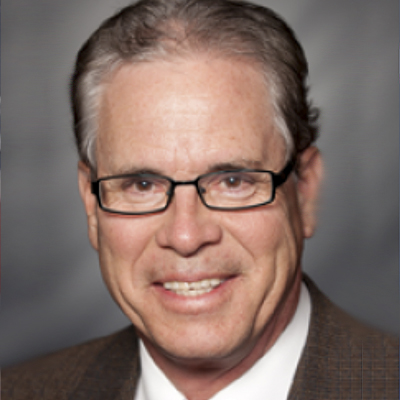
As a businessman, Senator-elect Braun is keenly aware of the intricacies of the global market and benefits to opening foreign markets. On trade issues, he has said, “I take tariffs and their effects very seriously and would only employ such negotiation tools when absolutely necessary.”
Senator-elect Braun is the founder and CEO of Meyer Distributing, a truck parts and equipment distributor with global reach which has employed thousands of Americans across the United States. He began his business career after graduating from Harvard Business School in 1978, co-founding Crystal Farms, Inc., which subsequently became a large turkey producing farm in the Midwest. Prior to being elected to the U.S. Senate, he served in the Indiana House of Representatives from 2014 to 2017. The USGLC engaged with his campaign to discuss the Senator-elect’s business background and global economic engagement.
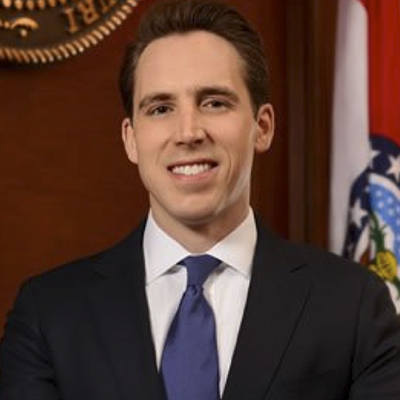
While he supports American leadership and global engagement, Senator-elect Hawley is critical of politicians he sees as putting global progress ahead of American interests. In addressing immigration policy, he criticized establishment politicians saying, “They’ve become globalists first and Americans second.” He was endorsed by now-National Security Advisor John Bolton, who said of the Senator-elect “I know he will vote and advocate for a stronger national security and an America-first foreign policy,” to which Hawley responded saying, “American greatness begins with security and stability.”
Describing himself as a Constitutional and social conservative, Senator-elect Hawley spent much of his campaign focused on domestic issues, and has not publicly addressed many foreign policy and national security related issues, including his position on the use of America’s foreign assistance tools to advance our interests and values. While serving as Attorney General, however, Senator-elect Hawley focused resources on combating human trafficking. He established the Human Trafficking Task Force in Missouri, which created new tools for not only prosecuting human traffickers, but also identifying victims. He has said “Chances are you’ve been witness to a crime, it’s the epidemic of human trafficking…I’m determined to abolish this modern day slavery.” Recognizing that it is not only a domestic issue, he has said “The epidemic is also a global issue that trickles into Missouri territory through businesses.”
Prior to his election as Attorney General, he taught constitutional law at the University of Missouri Law School and served as senior counsel to the Becket Fund for Religious Liberty. He litigated and won two cases at the Supreme Court of the United States and was the co-counsel on Burwell v. Hobby Lobby. Before beginning law school, Senator-elect Hawley spent a year overseas teaching at a secondary school.
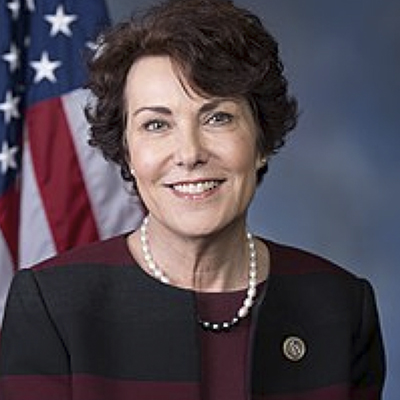
During her term representing Nevada’s 3rd congressional district, Senator-elect Rosen amassed a strong record of support for the International Affairs Budget. During consideration of an FY18 omnibus spending bill, she voted against two amendments that would have cut America’s strategic investments in development and diplomacy. She also signed onto a letter with the House Armenian Caucus urging the rejection of harmful cuts to U.S. foreign assistance earlier this year. The letter stated, “At a time of tremendous global uncertainty, the U.S. should continue to foster the progress of its allies, not retreat from its responsibilities as the world’s leading democracy.” Responding to the Administration’s proposal to cut the FY19 International Affairs Budget by 30%, Senator-elect Rosen said, “I’m really concerned about this new budget and its significant cuts to the State Department. Combating the threat of North Korea, it’s going to require a lot of strong cooperation … just like we are heading off China’s attempts to become the world’s leading military and economic power. It’s going to necessitate us strengthening our alliances.” The USGLC has engaged with her and her staff in D.C. and in Nevada.
Before being elected to Congress, Senator-elect Rosen worked as a computer programmer, software developer, and designer for some of the biggest companies in Nevada including Summa Corporation, Citibank, and Southwest Gas Company.
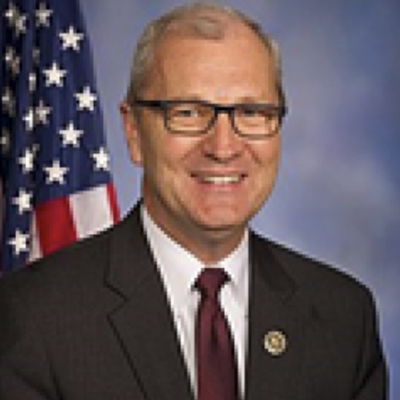
During his congressional tenure, Senator-elect Cramer has demonstrated a strong record of support for the International Affairs Budget. During consideration of an FY18 spending package, he voted against two amendments that would have cut spending for international development and diplomacy. He has also supported legislation to strengthen these programs, voting for the 2016 Global Food Security Act, the 2015 reauthorization of the Export-Import Bank, the 2014 Electrify Africa Act, and the FY14 State Department Authorization.
Senator-elect Cramer co-chairs the Northern Border Caucus, which fosters continued growth in the relationship between the United States and Canada. While in Congress, he has traveled to Kazakhstan and Ukraine. In 2013, he participated in a joint ceremony between the Taiwanese Agricultural Trade Goodwill Mission and U.S. grain exporters, where he said, “Food has long been a tool of peace, and this day and this mission serve as testimony to the world that agricultural trade between partners and friends is better than missiles.”
Senator-elect Cramer has worked with Unseen Ministries, a North Dakota-based nonprofit fighting human trafficking and its root causes around the world, and has advocated for an end to the practice. The USGLC has engaged with Senator-elect Cramer and his staff on several occasions. He has expressed his opposition to proposed cuts to America’s development and diplomacy programs.
Before being elected to Congress, Senator-elect Cramer served as the Economic Development Director for North Dakota, a member of the North Dakota Public Service Commission, and as the Chairman and Executive Director of the North Dakota Republican Party.
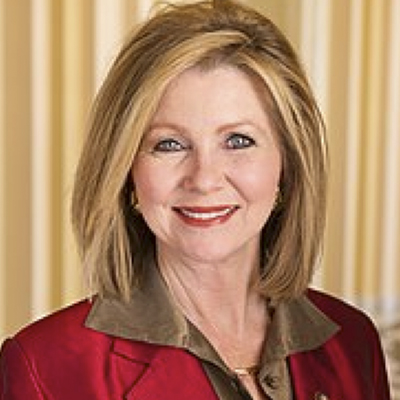
She has been a vocal supporter of elevating the rights of women around the world. Noting that she has worked with female candidates in Iraq, Afghanistan, and across the Middle East to elevate the role of women in society and governance, Senator-elect Blackburn has said “countries that politically enfranchise women are more likely to be moderate, democratic, and American allies.” She has been active in Congress on the issue of human trafficking calling it a “horrific crime” and pledging to continue to work to stop human trafficking at home and abroad saying it is “a crime that is taking place right around us that also has an international component.”
When it comes to America’s international development and diplomacy programs, Senator-elect Blackburn has a mixed voting record. She voted against final passage of the Global Food Security Act, but voted for an earlier version of the bill. She voted for the 2014 Electrify Africa Act and the FY14 State Department Authorization, but in 2011 voted in favor of several amendments to cut food aid and multilateral assistance. Senator-elect Blackburn also voted against the 2012 and 2015 reauthorizations of the Export-Import Bank. She has traveled extensively overseas, visiting more than 30 countries including Brazil, Argentina, Chile, Greece, Turkey, Afghanistan, Iraq, Vietnam, Jordan, Kuwait, Pakistan, Colombia, Honduras, and Israel. She serves on the Congressional Taiwan and China Caucuses, the International Conservation Caucus, and the Congressional Caucus on Turkey and Turkish Americans. The USGLC has met with Senator-elect Blackburn and her staff on a number of occasions, with a focus on global women’s empowerment and human trafficking issues.
Prior to being elected to Congress, Senator-elect Blackburn chaired the Williamson County Republican Party from 1989 to 1991 and served as a Tennessee State Senator from 1999 to 2002.
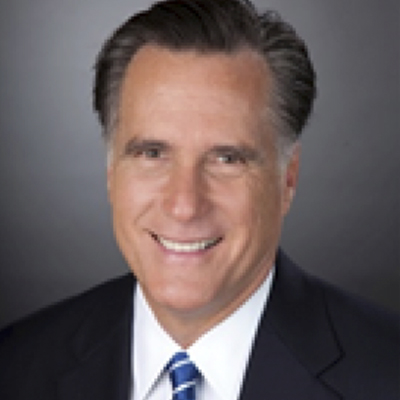
Senator-elect Romney has long espoused the need for utilizing all the tools of national power and influence, development and diplomacy alongside defense, to advance our interests and values around the world, saying “We must promote our values of freedom and free enterprise through our diplomacy, economic ties, alliances and other soft power tools.” In his book, No Apology, Senator-elect Romney wrote of the importance of soft power tools as a preventative measure against ultimately using military force highlighting, “the full spectrum of hard and soft power to influence events before they erupt into conflict. Resort to force is always the least desirable and costliest option. We must therefore employ all the tools of statecraft to shape the outcome of threatening situations before they demand military action.”
Reinforcing a commitment to America’s fight against global HIV/AIDS as a reflection of American generosity, Senator-elect Romney said at the opening of the 19th Annual International AIDS Day Conference, “America is a compassionate nation. It has been – and must continue to be – a beacon of hope for innovative research and support as we seek to overcome the global challenge of AIDS.” Speaking at the Clinton Global Initiative in 2012, he lauded public-private partnerships to address pressing development and humanitarian challenges, saying “If foreign aid can leverage this massive investment by private enterprise, it may exponentially expand the ability to not only care for those who suffer, but also to change lives.” He called for the strategic use of foreign aid that not only addresses humanitarian crises, such as the PEPFAR initiative, but also “aid that elevates people and brings about lasting change in communities and in nations.” The USGLC met with his senior campaign leadership who were well versed on the importance of global development and diplomacy.
Senator-elect Romney ran for president in 2008 and was the 2012 Republican nominee for President of the United States. Previously, he served as Governor of Massachusetts and managed the 2002 Salt Lake Organizing Committee for the Winter Olympics. Along with his wife Ann, he has worked with the humanitarian organization Charity Vision, participating in humanitarian trips to Peru, Indonesia, and India.
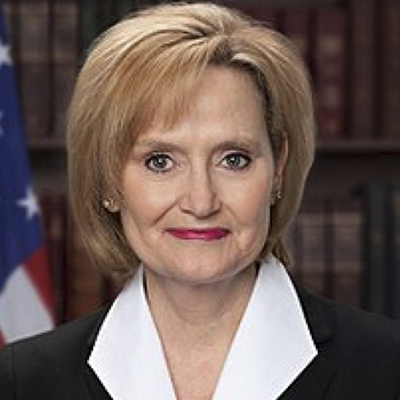
Formerly Mississippi’s Commissioner of Agriculture and Commerce, Senator Hyde-Smith has been vocal about the importance of eradicating hunger worldwide. She recently participated in an event co-hosted by the University of California, Davis and Feed the Future Innovation Lab for Horticulture to highlight the “critical impacts of U.S. universities and global partners in advancing agricultural innovations to end hunger.” She was also a leader in helping Mississippi State University secure a grant through USAID to “continue efforts to reduce poverty and improve health outcomes for global populations…” In an April State-Foreign Operations Subcommittee hearing, Senator Hyde-Smith lauded the partnership between Mississippi State University and USAID, with Mississippi State President Mark Keenum leading USAID’s Board for International Food and Agriculture Development. She shared she was confident the work of the Board in addressing global food insecurity and agricultural development would “serve our nation.” The USGLC has engaged with Senator Hyde-Smith directly, who reiterated her interest in global food security issues.
Recognizing the value in global economic engagement, Senator Hyde-Smith is also focused on opening up foreign markets, saying one of her top priorities is “helping to open foreign markets for Mississippi agricultural products.”
She recognizes the value of maintaining strong ties with our allies in order to advance American values and diplomacy, and has said that strengthening America’s alliance with Israel is “in U.S. security interests and the absolute right thing to do for our closest friend in a very dangerous part of the world.”
Prior to being appointed to the Senate, Senator Hyde-Smith was a member of the Mississippi Senate, where she was Vice Chair of the National Agriculture Committee of State Legislators. In 2016 she participated in a trade mission to Hong Kong and China with the goal of opening up foreign markets to trade with Mississippi. At the time, she said “It was part of my job to go and do everything I can do to expand the market.”
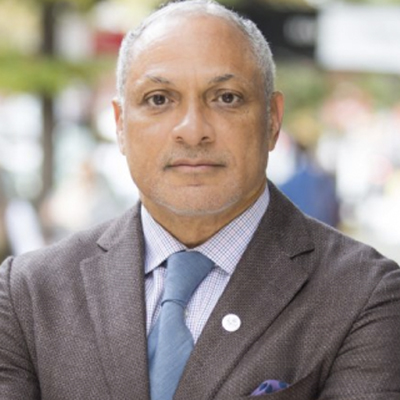
Serving in the U.S. House of Represenative from 1987-1993, he strongly supported America’s development and diplomacy programs. He focused on programs related to the African continent, including those addressing famine and empowering women, including through bolstering USAID’s support for microenterprise as well as through strengthening maternal and child health. In 1987, then-Rep. Espy co-sponsored the Urgent Supplemental Appropriations for Southern Africa Act, to provide additional assistance to that region of Africa. That same year, he co-sponsored the Africa Famine Recovery and Development Act, to help low-income Africans – particularly women – take ownership of their own development and co-sponsored the same bill when it was reintroduced in 1989. In 1988, he co-sponsored the Women in Development Act and the Global Poverty Reduction Act. In 1992, he co-sponsored the International Women and Child Health Act.
While serving in the House, he was a member of the House Budget and Agriculture Committees and he participated in a joint initiative by the African-American community and the Jewish community called the Committee of Blacks and Jews to Aid Ethiopia, a group whose mission it was to end hunger and alleviate the destruction from a famine in the early 1990s. He said, “It’s a start, a small seed of concern for what we hope will be a grass-roots campaign of compassion by Americans of all colors and faiths for the victims of potentially the worst famine of this century.”
The USGLC engaged with Secretary Espy’s senior campaign leadership to discuss his priorities around food security and humanitarian assistance. Born and raised in Mississippi, Espy served as the 25th U.S. Secretary of Agriculture from 1993-1994. Most recently, Secretary Espy served on the Board of Directors of Cultivating New Frontiers in Agriculture (CNFA), an international agricultural development non-profit.
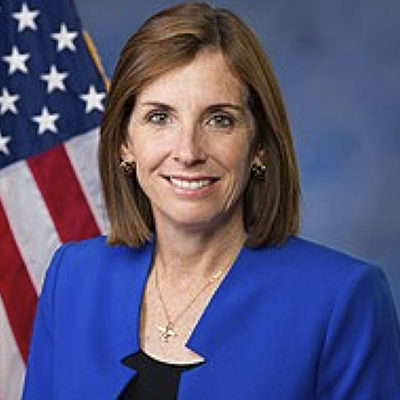
During her tenure representing Arizona’s 2nd congressional district, Representative McSally strongly supported the International Affairs Budget, voting for several pieces of legislation to strengthen America’s investments in development and diplomacy. Of note, during consideration of an FY18 omnibus spending bill, she voted for an amendment that would have cut the topline, but also opposed a similar amendment. She voted for the 2016 Global Food Security Act, the 2016 Zika Response Appropriations Act, and the 2015 reauthorization of the Export-Import Bank. Following a chemical weapons attack in Syria, she called on the U.S. to develop not only a military strategy, but to also address the humanitarian needs on the ground. She also urged the U.S. to “remove Assad from power, address the humanitarian crisis, and defeat ISIS.” The USGLC has engaged with Representative McSally numerous times on the importance of America’s global leadership role, including leveraging our development and diplomacy tools to keep our nation safe.
A Bronze Star recipient, Representative McSally graduated from the U.S. Air Force Academy and served in the Air Force for 26 years before retiring in 2010 as a Colonel. She flew for 225 combat hours as a Squadron Commander and led her A-10 team during Operation Enduring Freedom. During her tenure in the House, McSally traveled to Israel, Mexico, Japan, France, Poland, Ukraine, Estonia, and led a delegation to the Korean Demilitarized Zone.

During her three-term tenure representing Arizona’s 9th congressional district in the U.S. House of Representatives, Representative Sinema demonstrated strong support for the International Affairs Budget. She voted in favor of the 2016 Global Food Security Act, the 2016 Zika Response Appropriations Act, the 2014 Electrify Africa Act, and the FY14 State Department Authorization. Of note, during consideration of an FY18 omnibus spending bill, she voted for an amendment that would have cut the topline, but also opposed a similar amendment. Representative Sinema voted for the 2015 reauthorization of the Export-Import Bank, authoring a September 2014 op-ed on why extending the Bank’s authorization mattered for Arizona businesses. As a member of the House Financial Services Committee, she also focused on international development programs and contributions to the World Bank and the International Monetary Fund. Additionally, in the 114th Congress, Representative Sinema co-sponsored legislation laying out a comprehensive plan to defeat ISIS, which included provisions to “provide humanitarian assistance and relief, governance, and rule of law to regions previously impacted by ISIL and its affiliates.”
Sinema has made several official foreign visits during her time in Congress – to Afghanistan in 2013, Rwanda in 2015, and Canada in 2017. She also visited the West Bank and Jerusalem, and toured Rwanda and the Democratic Republic of the Congo with CARE in 2016 to visit development projects. The USGLC has engaged with Representative Sinema on several occasions, including hosting her at Arizona State University in 2014 at an event featuring Senator John McCain. Prior to being elected to Congress, Representative Sinema served as a social worker and later practiced law. She also served as an Arizona State Representative and State Senator. She spent time as a relief worker in Kenya in the 1990s.
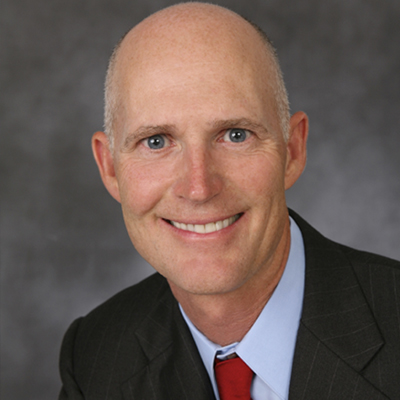
On international development and diplomacy issues, Governor Scott has been a supporter of global democracy and individual freedom, with a strong interest in Latin America. Recognizing both the humanitarian and economic importance of the region to the U.S., he has said democracy in Latin America “will yield greater stability and more freedom and opportunity for all those in the Western Hemisphere.” If elected to the Senate, Governor Scott has committed to “continue to aggressively find ways that Florida and the U.S. can stand strong against brutal regimes and fight for human rights and democracy across the globe.”
Governor Scott, and his wife Ann, have supported a variety of charities including World Vision, where they worked in partnership to establish a primary health care system in Bunyala, Kenya. In a meeting with the then-Prime Minister of Kenya, Raila Amolo Odinga, in 2011, Governor Scott said “I’ve been all over Kenya, driven clear across the country. My wife and I did a project in the Bengali area for four years in Kenya. It’s a great country. Our goal together is for Florida to build up trade with Kenya.”
He has stated it is in America’s economic interest to be globally engaged. During his tenure as governor, he embarked on 15 trade missions, notably to Canada, Chile, Colombia, Argentina, and Israel. Following a mission to Chile he said “During last month’s trade mission to Chile, we focused on connecting Florida businesses and organizations with opportunities to work with Chilean companies. Because of these new opportunities, Florida’s economy and the families of our state will benefit.”
The USGLC spoke with his senior campaign leadership who were well versed on the importance of global development and diplomacy. A business leader, Governor Scott was a founding partner of the Columbia Healthcare Corporation, which later merged with the Hospital Corporation of America (now HCA). He served in the U.S. Navy for more than two years, with much of that time spent aboard the U.S.S. Glover as a radar technician.